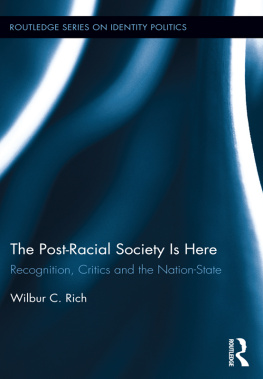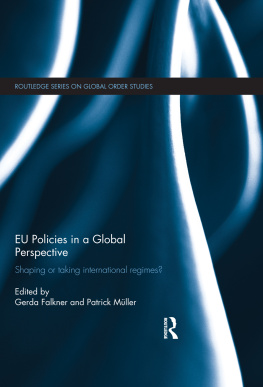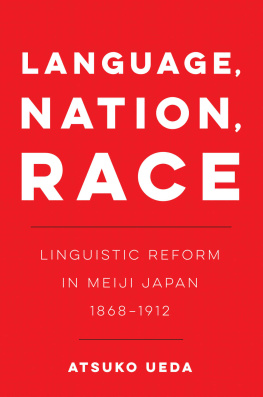
Race, Nation, War
This book examines international post-9/11 policies by connecting them to the US violations of Japanese Americans human rights during World War II. Analysing the policies of the United States, Race, Nation, War illustrates how ideas of race and masculinity shaped the indefinite leave policy which the government used to move Japanese Americans out of camps during the war. With attention to recent American and European policies, the author demonstrates that race, gender, and nation also converge in President Trumps policies on refugees and human rights, the German and European migrant crises, and related German policies and politics. Assayed from a unique city and regional planning perspective, Race, Nation, War will appeal not only to scholars of planning, but also to those with interests in American Studies, gender studies, race and ethnicity, sociology, history, and public policy.
Ayanna Yonemura is a lecturer in the Ethnic Studies and Sociology Departments at California State University Sacramento, USA. Her research looks at race, public policy, and urban planning from a feminist perspective.
Race, Nation, War
Japanese American Forced Removal, Public Policy and National Security
Ayanna Yonemura
First published 2019
by Routledge
2 Park Square, Milton Park, Abingdon, Oxon OX14 4RN
and by Routledge
52 Vanderbilt Avenue, New York, NY 10017
Routledge is an imprint of the Taylor & Francis Group, an informa business
2019 Ayanna Sumiko Yonemura
The right of Ayanna Sumiko Yonemura to be identified as author of this work has been asserted by her in accordance with sections 77 and 78 of the Copyright, Designs and Patents Act 1988.
All rights reserved. No part of this book may be reprinted or reproduced or utilised in any form or by any electronic, mechanical, or other means, now known or hereafter invented, including photocopying and recording, or in any information storage or retrieval system, without permission in writing from the publishers.
Trademark notice: Product or corporate names may be trademarks or registered trademarks, and are used only for identification and explanation without intent to infringe.
British Library Cataloguing-in-Publication Data
A catalogue record for this book is available from the British Library
Library of Congress Cataloging-in-Publication Data
A catalog record has been requested for this book
ISBN: 978-1-138-60637-1 (hbk)
ISBN: 978-0-429-46769-1 (ebk)
Typeset in Times New Roman
by codeMantra
This book is dedicated to my father, Mitsugi Yonemura.
Trying to thank people who assisted and supported me in writing this book is a daunting task. The list of people to whom I am grateful is a long one, and there are the restraints of space to contend with as well as, no doubt, a limited memory as many aspects of the book originated a long time ago. I am very grateful to my parents for their consistent confidence in me and support of this project and endless others that I have undertaken. The friendships of Carla Cain, Tammi Monsanto, and William and Kit Chang have seen me through the highs and lows of graduate school and beyond.
An enormous thank you goes to Shirley Hune, my PhD advisor, without whom I would not have undertaken a historical topic for my dissertation. She was also my mentor for UCLAs Graduate Divisions Summer Research Institute Fellowship, which allowed me to concentrate on policies that targeted Japanese Americans during World War II during my first summer as a doctoral student. It takes committees to raise doctoral students, and everyone on my committees shaped this book as well as who I am today. In addition to Shirley, they are Leobardo Estrada, Yuji Ichioka, Don Nakanishi, Abel Valenzuela, and Ed Soja.
Before and since my graduate years, many scholars have been very supportive. Lois Takahashi and Sondra Hale have provided me with years of intellectual advice and endless inspiration dating back to my M.A. student years, when I took a course from Sondra, and my immediate post-doctoral years, when I met Lois. Lois was one of the first to provide me direction on this project, and her insights have improved it enormously ever since. My undergraduate professors first nurtured my efforts to analyze race, gender, and nationalism. Some of the many wonderful faculty members at University of California at Santa Cruz who contributed to my intellectual growth are Bettina Aptheker and Angela Davis as well as Loisa Nygaard and John Brown Childs who advised me on my B.A. thesis. Dr. Ricky Green and the Interdisciplinary Faculty Community on Immigration, both of California State University Sacramento, provided generous feedback during the critical months before I completed the manuscript.
The institutions that have supported this book or the doctoral dissertation that is its foundation include UCLAs Institute of American Cultures, UCLAs Graduate Division and UCLAs Urban Planning Department. A Civil Liberties Public Education Fund National Fellowship funded my dissertation research. Grants from California State University Sacramentos College of Social Sciences and Interdisciplinary Studies also provided valued support.
As a presidential candidate and as U.S. President, Donald Trump has routinely performed a type of masculinity which includes boasting about the size of his body parts and employing, what some commentators have called, the language of domestic violence.
This book presents three moments in which ideologies of cultural superiority and gender manifested in national policies during times of war. They are the United States World War II forced removal and incarceration of Japanese Americans; U.S. President Donald Trumps refugee policies during the so-called war on terror; and contemporary and parallel refugee policies in Germany under Chancellor Angela Merkel. I explore these moments through the lenses of cultural domination, gender ideology, and policymakers intersecting cultural contexts especially those pertaining to race, class, and nationality. Legal scholar Jerry Kang speaks to the significance of Japanese American history to national security policies in the post-9/11 era,
We are fighting an indefinite war on terror. In considering the policy and practice of this war, the history of Japanese American internment looms large... It is only through constant vigilance that the internment can remain a lighthouse that helps us navigate the rocky shores triangulated by freedom, equality, and security. We can never presume never again.
Far from being an aberration, Mr. Trumps ideologies are ubiquitous in European and Euro-American politics historically as well as in the twenty-first century. By relating the World War II-era policies to U.S. and international postSeptember 11, 2001 policies, my aim is to shed light on the tenacious myth of white cultural superiority, its significance in the twenty-first century, and its entanglements with gender ideologies and national identities.
An interdisciplinary inquiry, this book relies on theories and methods from gender studies, postcolonial studies, ethnic studies, and history to analyze public policy, public administration, and politics. As it originated with a dissertation on the hidden history of urban and regional plannings influence on cultural domination in War Relocation Authoritys (WRA) policy, this book is, partly, a history of urban and regional planning and the related disciplines of applied sociology and anthropology. While










